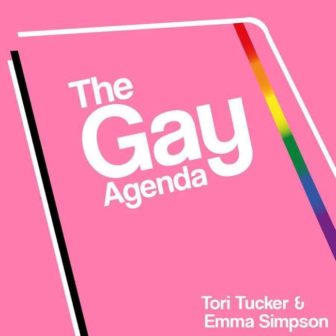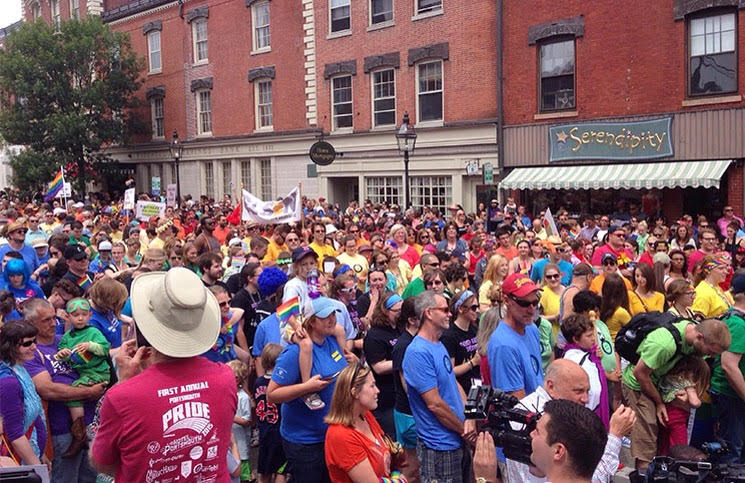 By Emma Simpson
By Emma Simpson
The Gay Agenda
The Census Bureau recently sent its 2020 census proposal to Congress, which seemed to involve a category where people could identify their sexual orientation and their gender identity.
For many LGBTQ Americans, this was exciting news. Unfortunately, just one day later, the Bureau put out another statement saying this had been reviewed and corrected. Consequently, a final version of the census was published sans LGBTQ categories, leaving many people in the LGBTQ community disappointed and exasperated.
So why does it matter? People who are LGBTQ are often perceived and painted as deviant. We are routinely reminded through microaggressions and outright moments of bigotry and hatefulness that we are a minority.

Emma Simpson
People who are straight and/or cisgender (a word used to refer to someone who identifies with their gender assigned at birth) tend to invalidate our lived experiences by refusing to listen to us. It wasn’t even until two years ago that same sex marriage was legalized nationwide, and people who are transgender or nonbinary have to fight for the simple recognition of their gender identity.
Basically, being part of the LGBTQ community can often make you feel invisible.
The prospect of an LGBTQ category on the census was such a beacon of hope for people in the community because it would, without a doubt, combat the invisibility that often accompanies an LGBTQ identity.
This is not to say, however, that us folks who are LGBTQ are content with remaining invisible. Just this week I had a friend (Sam Whitaker, who just happens to be the president of the Keene State Pride group on campus) mention to me in passing that there was going to be a pride parade at Keene this weekend, which my girlfriend and I naturally made plans to attend.

Portsmouth Pride 2016 last June.
Pride parades are widely observed throughout the country and are a way for people in the LGBTQ community to celebrate their identities with other people who are LGBTQ and to enhance visibility within their own community.
Standing on the KSC Student Center lawn for the gathering on Saturday before the KSC Pride Parade with around 25 other people I felt more reassured than ever of our community and our ability to stand strong against those that would be more comfortable if we hid in the shadows instead of proudly standing up for who we are and what we believe in.
I attended my first this past summer in Portsmouth, and it was an incredible experience. The rainbows, the live music, but most of all, the sense of community that I felt (despite being overwhelmed by the enormous crowd) made me realize how powerful simple recognition can be for people who identify as LGBTQ.
In contrast with the many people celebrating, however, there were two or three outliers standing on the busiest street corner amidst vendors selling rainbow bracelets and flags spewing loud and hateful propaganda. It was a harsh reminder, even in a situation as celebratory as a pride parade, that there are those who have such negative feelings about people who may be different from them that they would actually devote an entire afternoon to shouting hatred at a bunch of people just trying to have a nice time.
Unfortunately, though our society has progressed measurably in the last few decades, there are people so filled with anger and discomfort toward those they perceive as, well, queer, that they truly feel it is necessary to attempt to snuff out the existence of people who don’t fit their idea of “normal.” Though some would gladly and willfully ignore our existence, LGBTQ people have always been around and we’re certainly not going anywhere now. In response to the Census Bureau, collecting data about us in the context of the census would provide solid proof that many Americans identify in a way other than straight and/or cisgender. We will continue to celebrate our identities loudly and proudly despite others’ attempts to silence us.
If you would like to know when pride events are coming up near you, you can visit http://www.gaypridecalendar.com/ to search for events by city, month, or specific date. Visibility counts.
Tori Tucker and Emma Simpson are Keene State College students who work on the column The Gay Agenda together. It is posted every Sunday at InDepthNH.org

Tori Tucker
Tori Tucker was born and raised in Portsmouth, New Hampshire. She is a student, author, and activist, and is currently in her senior year at Keene State College where she is finishing her English-Writing BA. In addition to being a writing student Tori also is pursuing minors in music and German.

Emma Simpson
Emma Simpson is a Women’s and Gender Studies major currently in her junior year at Keene State College. She is the vice president of her campus a cappella group and involved with Planned Parenthood as a volunteer.
InDepthNH.org and Manchester Ink Link co-publish The Gay Agenda





